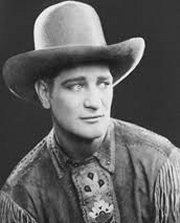
Art Acord
RETURN TO INDEX |
U.S. Army

 |
American silent film actor
and rodeo champion. He won the Steer Bulldogging world
championship in 1912 and repeated as champion in 1916, defeating
challenger and friend Hoot Gibson. His rodeo skills had been
sharpened when he worked for a time for the Miller Brothers' traveling
101 Ranch Wild West Show. It was with the 101 that he made
friends with Tom Mix, Bee Ho Gray, "Broncho Billy" Anderson and Hoot
Gibson, all cowboys of the silver screen. He went on to become one
of the first true stars of western films. A celebrated rodeo star,
Acord not only acted but also wrote scripts and performed as a stunt
man. He made over 100 film shorts, all but a few of which have
been lost.
Served in WW1. He was awarded the Croix de Guerre for bravery. |
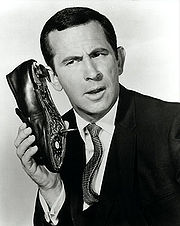
Don Adams
RETURN TO INDEX
|
U.S. Marine Corps

 |
American actor, comedian and
director. In his five decades on television, he was best known as
Maxwell Smart (Agent 86) in the TV situation comedy
Get Smart.
Enlisted in 1941 and assigned to the
Third Marines in Samoa until he was sent as a replacement to the
Battle of Guadalcanal, where he was the only survivor of his
platoon. He was evacuated and spent over a year in a Navy hospital in
Wellington, New Zealand. After his recovery, he served as a Marine
drill instructor in the U.S. |
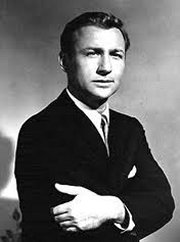 Nick Adams
Nick Adams
RETURN TO INDEX |
U.S. Coast Guard
 |
American film and television
actor. He has been noted for his supporting roles in successful
Hollywood films during the 1950s and 1960s along with his starring role
in the ABC television series
The Rebel (1959).
Drafted in January 1952. Two and a half
years later, in June 1954 his ship docked in Long Beach harbor and after
a brash audition for director John Ford during which Adams did
impressions of James Cagney and other celebrities while dressed in his
Coast Guard uniform, he took his accumulated leave and appeared as
Seaman Reber in the 1955 film version of
Mister Roberts. Adams then completed his military service, returned
to Los Angeles and at the age of 23. |
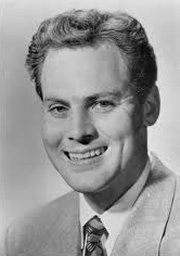 John Agar
John Agar
RETURN
TO INDEX |
U.S. Army Air Forces

 |
American actor. He starred
alongside John Wayne in the films
Sands of Iwo
Jima and
She Wore
a Yellow Ribbon, but was later relegated to B movies, such as
Tarantula,
The Mole People,
The
Brain from Planet Arous,
Flesh and the
Spur, and Hand of Death. He also starred with Lucille Ball in the
1951 movie The Magic Carpet.
Served in WW2 as a physical training
instructor in the continental U.S. and was a sergeant at the time he left the army in 1946. |
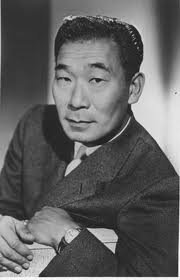
Philip Ahn
RETURN
TO INDEX |
U.S. Army
 |
Korean-American actor.
He was the first Asian American film actor to receive a star on the
Hollywood Walk of Fame. Ahn's first film was A Scream in the Night
in 1935. He appeared in the Bing Crosby film
Anything Goes. His first credited roles came in 1936 in
The
General Died at Dawn and
Stowaway. He starred opposite Anna May Wong in
Daughter of
Shanghai (1937) and King of Chinatown (1939). During WW2 Ahn
often played Japanese villains in war films. Mistakenly thought to
be Japanese, he received several death threats. Ahn appeared in
Love Is a Many-Splendored Thing,
Around the World in Eighty Days,
Thoroughly Modern Millie and
Paradise, Hawaiian Style, with
Elvis Presley.
He got to play Korean characters in Korean War movies such as
Battle Circus (1953) and
Battle Hymn (1956). His last major role was as "Master Kan" on
the television series
Kung Fu.
Served in WW2 as an entertainer in Special Services. |
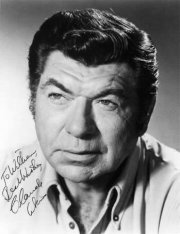
Claude Akins
RETURN
TO INDEX |
U.S. Army

 |
American actor with a long
career on stage, screen and television. He is best remembered as
Sheriff Lobo in the 1970s
TV series
B. J. and the Bear, and later
The Misadventures of Sheriff Lobo. In television he had
numerous roles in Western series, including
Frontier,
Crusader,
My Friend Flicka,
Northwest Passage,
State Trooper,
Wagon Train,
Overland Trail,
Laramie,
The Big Valley,
Daniel Boone,
The Legend of Jesse James,
Death Valley Days,
The Rifleman,
Rawhide,
Gunsmoke,
Bonanza,
and
The Oregon Trail. As a film actor, Akins first appeared in
1953's
From Here to Eternity. He appeared in 1954's
The Caine Mutiny,
Don't Give Up the Ship,
Merrill's Marauders,
The Devil's Brigade,
A Distant Trumpet (1964), and the gorilla leader Aldo in
Battle for the Planet of the Apes.
Served in WW2 serve with the Signal Corps in Burma and the Phillipines. |
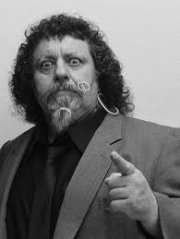
Lou Albano
RETURN
TO INDEX |
U.S. Army
 |
Italian-American
professional wrestler, manager and actor, better known as Captain Lou
Albano. He was active as a professional wrestler from 1953 until
1969, then he became a manager, until 1995. Throughout his 42-year
career, Albano guided 15 different tag teams and four singles
competitors to championship gold. Albano was part of the
"Triumvirate of Terror," a threesome of nefarious WWF managers that also
included The Grand Wizard of Wrestling and Fred Blassie. The trio
would be fixtures in the company for a decade, until the Grand Wizard's
death in 1983.
Served in the early 1950s. |
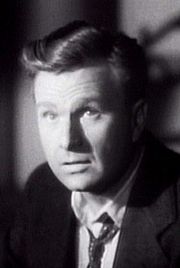
Eddie Albert
RETURN TO INDEX |
U.S. Navy


 |
American actor and
activist. Nominated for the Academy Award for Best Supporting Actor in
1954 for his performance in
Roman Holiday, and in 1973 for
The Heartbreak Kid. He starred as
Oliver
Wendell Douglas in the 1960s television situation comedy
Green Acres.
Served in WW2 and was awarded the
Bronze Star with Combat "V" for his actions during the
Invasion of Tarawa in November 1943. |
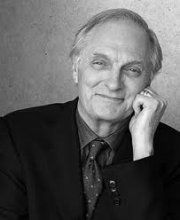
Alan Alda
RETURN TO INDEX |
U.S. Army Reserve |
American actor, director,
screenwriter, and author. A five-time Emmy Award and six-time Golden
Globe Award winner, he is best known for his role as Hawkeye Pierce in
the TV series
M*A*S*H. In 1966, he starred in the musical The Apple Tree on
Broadway; he was nominated for the Tony award as Best Actor in a Musical
for that role. Alda made his Hollywood acting debut as a
supporting player in Gone are the Days (1963). Other film roles
would follow, such as his portrayal of author, humorist, and actor
George Plimpton in the film Paper Lion (1968) as well as The
Extraordinary Seaman (1969) and the occult-murder-suspense thriller The
Mephisto Waltz (1971). In early 1972 Alda auditioned for and was
selected to play the role of "Hawkeye Pierce" in the TV adaptation of
the 1970 film M*A*S*H. During M*A*S*H's run and continuing through the
1980s, Alda embarked on a successful career as a writer and director,
with the ensemble The Four Seasons (1981) being perhaps his most notable hit.
Betsy's Wedding (1990) is his last directing credit to date. His role as
a pompous celebrity comedian in Crimes and Misdemeanors (1989) was
widely seen as a self-parody. In 1995 Alda starred as the
President in Canadian Bacon. In 1996, Alda played Henry Ford in Camping
With Henry and Tom. Beginning in 2004, Alda was a regular cast
member on the NBC program The West Wing, portraying Republican U.S.
Senator and presidential hopeful Arnold Vinick, for which, in August
2006, Alda won an Emmy Award. In 2004, Alda portrayed the late
conservative Maine Senator Owen Brewster in The Aviator and received his
first Academy Award nomination for his role. In the spring of
2005, Alda starred in the Tony Award-winning Broadway revival of
Glengarry Glen Ross, for which he received a Tony Award nomination for
Best Featured Actor in a Play.
Served from 1956 to 1958, including a six-month tour of duty as a gunnery
officer in Korea. |
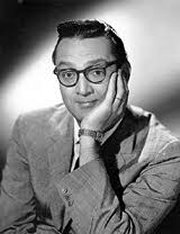
Steve Allen
RETURN TO INDEX |
U.S. Army

 |
American television
personality, musician, actor, comedian, and writer, best-known for his
television career. Became the first host of
The Tonight Show, where he was instrumental in innovating the
concept of the television talk show. Thereafter, he hosted numerous
game and variety shows, including
The Steve Allen Show
Served in WW2 as an infantryman. He
spent his service time at
Camp Roberts, near Monterey, California and did not serve overseas.
|
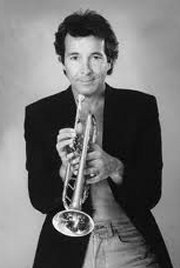
Herb Alpert
RETURN TO INDEX |
U.S. Army
 |
American musician most
associated with the group variously known as Herb Alpert & the Tijuana
Brass, Herb Alpert's Tijuana Brass or TJB. Alpert's musical
accomplishments include five number one hits, twenty-eight albums on the
Billboard charts, eight Grammy Awards, fourteen Platinum albums and
fifteen Gold albums. As of 1996, Alpert had sold 72 million albums
worldwide. Alpert and the Tijuana Brass won six Grammy awards.
Fifteen of their albums won gold discs, and fourteen won platinum discs.
In 1966 over 13 million Alpert recordings were sold, outselling the
Beatles. That same year, the Guinness Book of World Records
recognized that Alpert set a new record by placing five albums
simultaneously on the Billboard Pop Album Chart, an accomplishment that
has never been repeated.
Joined in 1952 and frequently performed at military ceremonies. |

Leroy Anderson
RETURN TO INDEX |
U.S. Army


 |
American composer of short,
light concert pieces, many of which were introduced by the Boston Pops
Orchestra under the direction of Arthur Fiedler. His pieces and
his recordings during the fifties conducting a studio orchestra were
immense commercial successes. "Blue Tango" was the first instrumental
recording ever to sell one million copies. His most famous pieces
are probably Sleigh
Ride and "The Syncopated Clock", both of which are instantly
recognizable to millions of people. Anderson has a star on the
Hollywood Walk of Fame at 1620 Vine Street. He was posthumously inducted
into the Songwriters Hall of Fame in 1988 and his music continues to be
a staple of "pops" orchestra repertoire.
Served in WW2 and Korea. In 1942 Anderson joined the service and
was assigned to Iceland as a translator and interpreter. Later in
1945 he was assigned to the Pentagon as Chief of the Scandinavian Desk
of Military Intelligence. Anderson was a reserve officer and was
recalled to active duty for the Korean War. |

Sunny Anderson
RETURN TO INDEX |
U.S. Air Force
 |
American Food Network
personality. She began hosting How'd That Get On My Plate? in July
2008. She also hosts the Food Network program
Cooking for Real and served as co-host of the Food Network program
Gotta Get It.
Joined in June 1993, where she earned the rank of Senior Airman and
worked as a military radio host in Seoul, South Korea, then worked for
Air Force News Agency radio and television in San Antonio from 1993 to
1997. She was honorably discharged from the Air Force in June
1997. |
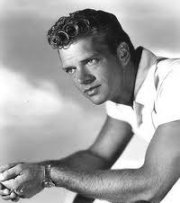
Keith Andes
RETURN TO INDEX |
U.S. Army Air Forces
 |
American film, radio,
musical theatre, stage and television actor. 1950s and 60s second lead
actor Keith Andes fit into the strappingly handsome and virile mold. He
won a Theatre World Award for "The Chocolate Soldier" in 1947 and,
subsequently, starred in "Kiss Me Kate" with Anne Jeffreys of TV's
"Topper" (1953) fame. More notably, he appeared opposite Lucille Ball
in her only Broadway musical "Wildcat" in 1960.
Served in WW2. He performed in the patriotic 1943 Broadway stage show
Winged Victory. |
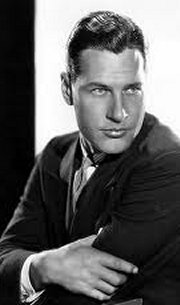
Richard Arlen
RETURN TO INDEX |
U.S. Army Air Forces
 |
American actor. His big break came when William A. Wellman cast
him as a pilot in the silent film
Wings (1927) with
Charles 'Buddy' Rogers and Clara Bow. The story of fighter aces
would win the Oscar for Best Picture and Arlen would continue to play
the tough, cynical hero throughout his career. Arlen appeared in
three more pictures directed by Wellman,
Beggars of Life
(1928), Ladies of the Mob
(1928) and The Man I Love
(1929). In 1929, he worked with Gary Cooper in the western
The Virginian (1929),
only this time Cooper was the star and Arlen was the supporting actor.
While Arlen moved easily into sound, his career just bumped along.
By 1935 he was working in such "B" pictures as
Three Live Ghosts
(1936).
Served in WW1 as a flight instructor with the Royal Canadian Flying Corps. |
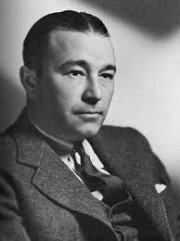
Robert
Armstrong
RETURN TO INDEX |
U.S. Army
 |
American film actor best remembered for his role as
Carl Denham in the 1933 version of
King Kong by RKO Pictures. He uttered the famous exit quote, "'Twas beauty killed the beast,"
at the film's end. Months later, he starred as
Carl Denham again in the sequel,
Son of Kong, released the same year. In the late 1950s, Armstrong
appeared as Sheriff Andy Anderson on Rod Cameron's syndicated
western-themed television series,
State Trooper.
Served in WW1. |
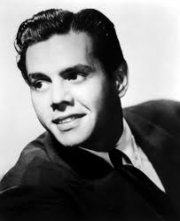
Desi Arnaz
RETURN TO INDEX |
U.S. Army

 |
Cuban-born
American musician, actor and television producer. While he gained
international renown for leading a Latin music band, the Desi Arnaz
Orchestra, he is best known for his role as Ricky Ricardo on the classic
American TV series
I Love Lucy,
starring with Lucille Ball, to whom he was married at the time.
He received his draft notice, but before reporting he injured his knee.
He completed his recruit training, but was classified for limited
service during WW2. He was assigned to direct United Service
Organization programs at a military hospital in the San
Fernando Valley. Discovering the first thing the wounded soldiers
requested was a glass of cold milk, he arranged for movie starlets to
meet them and pour the milk for them. |
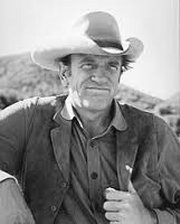
James Arness
RETURN TO INDEX |
U.S. Army



 |
American actor, best known
for portraying Marshal Matt Dillon on
Gunsmoke for 20
years. His brother was actor Peter Graves.
Arness has the distinction of having played the role of Marshal Matt
Dillon in five separate decades: 1955 to 1975 in the weekly series, then
in Return to Dodge (1987) and four more made-for-TV Gunsmoke movies in
the 1990s.
Served in WW2 and reported to Fort Snelling in March
1943. Arness served as a rifleman with the U.S. 3rd Infantry Division,
and was severely wounded during
Operation Shingle,
at Anzio, Italy. Due to his height, he was the first ordered off his
landing craft to determine the depth of the water; it came up to his
waist. On January 29, 1945, having undergone surgery several times,
Arness was honorably discharged. His wounds bothered him ever since,
and in recent years Arness has suffered from acute leg pain. His
decorations include the Bronze Star, Purple Heart; the
European-African-Middle Eastern Campaign Medal with three bronze battle
stars, the World War II Victory Medal and the Combat Infantryman Badge. |
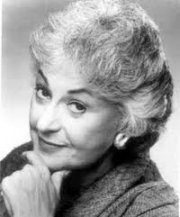
Bea Arthur
RETURN TO INDEX |
U.S. Marine Corps
Women's
Reserve
 |
American actress, comedienne
and singer whose career spanned seven decades. Arthur achieved fame as
the character Maude Findlay on the 1970s sitcoms
All in the Family and
Maude, and as Dorothy Zbornak on the 1980s sitcom
The Golden Girls, winning Emmy Awards for both roles.
Served
in WW2 where she spent 30 months in the Marine Corps. She was one of
the first members of the Women's Reserve and spent time as a typist and
a truck driver despite publicly denying any military service. When she
enlisted, she was described as "argumentative and "over-aggressive." The
recruitment officer concluded, however, that she is: "Officious--but
probably a good worker--if she has her own way!". |
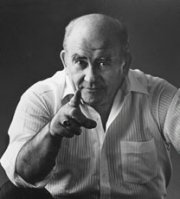
Ed Asner
RETURN TO INDEX |
U.S. Army

 |
American film, television,
stage, and voice actor and former president of the Screen Actors Guild,
primarily known for his Emmy Award-winning role as Lou Grant on both
The Mary Tyler Moore Show and its spin-off series,
Lou Grant.
Served in WW2 with the
U.S. Army Signal Corps and appeared in plays that toured Army camps
in Europe. |
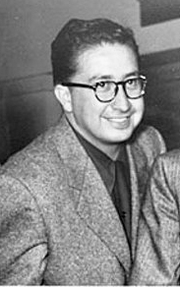
Xavier Atencio
RETURN TO INDEX |
U.S. Army Air Forces

 |
American animator and
Imagineer for The Walt Disney Company from 1938 until 1965. He
contributed to various Disney attractions including
Pirates of the Caribbean for which he also penned the lyrics to the
theme song, "Yo
Ho (A Pirate's Life for Me).
Served in WW2 1941 to 1945 reaching the rank of captain in the 2nd Photo
Tech Squadron, stationed in England. |
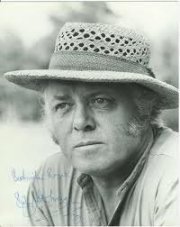
Richard Attenborough
RETURN TO INDEX |
Royal Air Force


 |
British actor, director,
producer and entrepreneur. As director and producer he won two
Academy Awards for the 1982 film
Gandhi. He has also won four BAFTA Awards and three Golden
Globes. As an actor, he is perhaps best known for his roles in
The Great Escape,
Jurassic Park and its 1997 sequel. In 1967 and 1968, he won
back-to-back Golden Globe Awards in the category of Best Supporting
Actor, the first time for
The Sand Pebbles and the second time for
Doctor Dolittle.
Served in WW2 as an air-gunner cameraman. He would fly in the tail
end of a Lancaster bomber taking film of a target before a bombing raid
and then again immediately after it, having circled in the air while the
raid took place. |
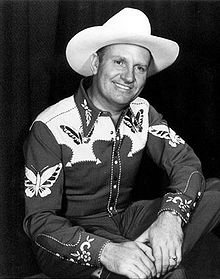
Gene Autry
RETURN TO INDEX |
U.S. Army Air Forces

 |
American performer who
gained fame as
The Singing Cowboy on the radio, in movies and on television for
more than three decades beginning in the 1930s.
Served as a
C-47 Skytrain pilot with the rank of flight officer in the
Air Transport Command during WW2 flying dangerous missions over the
Himalayas, nicknamed the Hump, between Burma and China. |
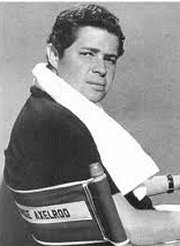
George Axelrod
RETURN TO INDEX |
U.S. Army
 |
American screenwriter,
producer, playwright and film director, best known for his play,
The Seven Year Itch (1952), which was adapted into a movie of the
same name starring Marilyn Monroe. He was nominated for an Academy Award
for his 1961 adaptation of Truman Capote's
Breakfast at Tiffany's and also adapted Richard Condon's
The Manchurian Candidate (1962).
Served in WW2 in the Army Signal Corps. |
|

